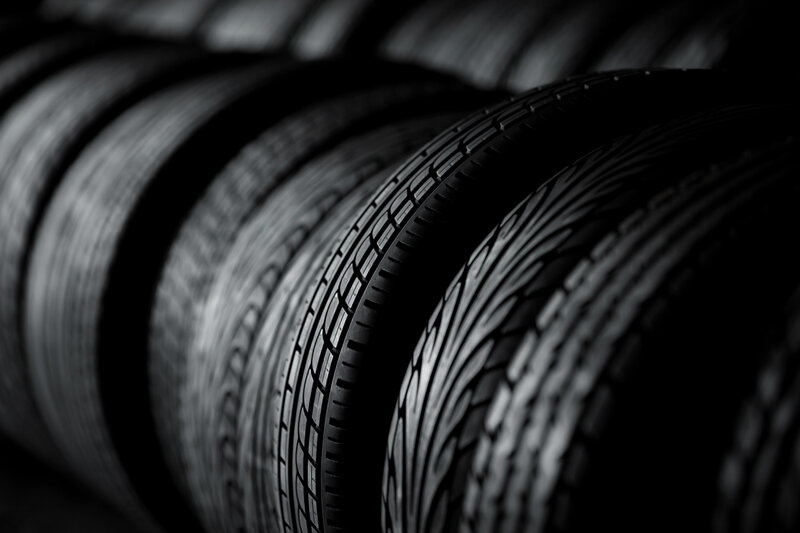
When people think of tire failure, they usually assume that it can only happen to regular cars. However, this isn't the case, as it's common for heavy equipment, like diesel trucks, forklifts, and tractors, to experience tire troubles. If you want to keep your hardware working smoothly, you've got to know how to tell if you need new tires.
All Bay Diesel, an experienced mobile mechanic in the Bay Area, is here to explain why tires fail, as well as the six most common signs that you need tire replacement.
Tires are more complicated than you'd think. They use pressure-treated rubber to support your vehicle's movement. This rubber has treads or grooves that help it grip the ground. When your tire's tread depth goes awry due to a bad driving style, nails, or anything else, they won't perform as they should.
It's all too common for people to assume that tire failure happens without warning. Catastrophic tire failures do happen, but let's be honest: usually, tire problems develop over time. Repeated, constant wear and tear causes problems like uneven wear, not that occasional trip around the block.
Knowing how to tell if you need new tires doesn't have to be hard. Whether you own a tractor, trailer, or anything in between, if you watch out for these six warning signs and regularly inspect your tires, you shouldn't have any trouble in the future.
Sunlight can actually damage tires. Constant sun exposure reduces tire flexibility, especially in warm, tropical climates. However, there are countless other causes of rubber damage, like road salt, heat, and debris.
Performing a visual inspection on your tires for any rubber damage is pretty simple. Do you notice any cracks, chips, or punctures? If so, don't wait; get new tires as soon as possible, and don't drive until the job's done. Using heavy equipment with bad tires won't just make the problem worse. In fact, it can cause serious, life-changing accidents.
Treadwear can occur for many different reasons, but it's most common when your truck's suspension becomes worn down. A great way to tell if your tire's tread pattern isn't where it should be is to look at its tread bars. These little bars form specific patterns, and when your tire's main treads become flush with them, you'll need new tires.
There's another way to tell if you need new tires: the penny test. This test is exactly what it sounds like; you take a penny and place it into your tire tread. If you can see the top of Abraham Lincoln's head, you'll need new tires.
Avoiding treadwear isn't difficult, however. Most experts recommend that you rotate your tires every 5,000 miles. It's an easy job that can improve your tires' lifespan.
Low tire pressure can be catastrophic for tires. If you drive your forklift or truck on bad tires, you may blow them out and lose control of your vehicle. Although pressure issues don't happen overnight, it's worth paying close attention to your tires.
Testing for low tire pressure is simple. Set aside time each month to inspect your tires, seeing if they are deflated or soft to the touch. Some work vehicles also have tire warning lights, making knowing how to tell if you need new tires easy.
Unfortunately, just like regular cars, work vehicles are vulnerable to potholes and other road hazards. In particular, with forklifts and other equipment that can be tricky to navigate, it's easy to accidentally bump into curbs or other hard objects. While one or two occasional incidents might not cause any problems, over time, these accidents can cause what's known as sidewall expansion.
Tires have what's known as an inner liner. This liner provides structural support, enabling your tires to spin and move without trouble. However, sudden impacts can rupture this liner, even if they don't break the tire's exterior surface.
When the inner liner breaks, it causes bulges that can eventually rupture your entire tire.
Are you feeling vibrations when you drive your car? That's normal, to some extent. If there are any weird or strange vibrations or loud noises that cause you grief, pay attention! Vibrations coming from beneath you or your car's rear are signs of tire trouble.
That being said, it's a sad reality that car vibrations often indicate much worse problems than bad tires. Suspension issues are no joke, and they can cause vibrations in your steering wheel. You need to fix these problems as soon as possible, or you could experience catastrophic vehicle failures.
Suspension and tire troubles aren't just a problem with trucks and other road vehicles. You shouldn't take these problems lightly when they occur in forklifts and tractors; even if they're not road bound, they can still break down and cause accidents.
Your equipment's tires are marvels of modern engineering; they often come straight from the factory pre-optimized for different weather conditions and seasons. That being said, temperature changes can still wreak havoc on your tires. That's because tires respond to cold temperatures by releasing pressure and hot conditions by warming.
In particular, hot temperatures compound heating issues, as road friction already heats tires up. When combined, these two things can damage your tire treads quicker than you'd expect.
Even if you know how to tell if you need new tires, you still need expert care and assistance to replace them. DIY tire replacement isn't ideal, as there's nothing like a professional touch to keep your vehicles running smoothly. Diesel trucks, forklifts, and other heavy equipment also need specialized care.
Don't cut corners on your personal or business equipment. With All Bay Diesel, you'll get quality care, and we'll create a heavy equipment maintenance program that meets your unique needs. Contact us at (925) 522-1780 to schedule an appointment today!